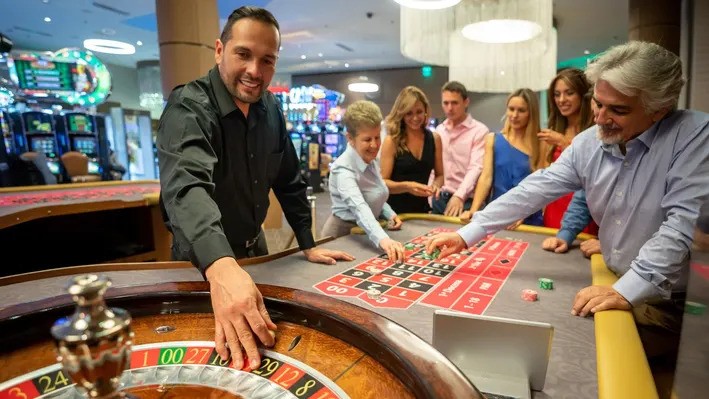In the glittering halls of casinos, where fortunes are won and lost with the spin of a wheel or the flip of a card, the allure of luck is undeniable. Yet, beneath the surface of chance lies a complex world governed by the principles of probability and statistics qqarena88. Welcome to the realm where science meets the thrill of the gamble: the science of casino probability.
Casinos, with their flashing lights and seductive promises of wealth, are designed to captivate the human imagination. But behind every roll of the dice and every pull of the lever lies a carefully calculated system rooted in mathematical certainty. Understanding the science behind casino games can shed light on why the house always seems to have the edge.
At the heart of casino probability is the concept of expected value. In simple terms, expected value represents the average outcome of a particular event over the long run. For example, in a game of roulette, the expected value of betting on a single number is negative because the odds of winning are low, but the payout is substantial. Over time, the casino expects to profit from players who consistently make such bets.
Probability theory provides the framework for understanding the likelihood of different outcomes in casino games. Whether it’s the distribution of cards in blackjack or the arrangement of symbols on a slot machine, probabilities dictate the course of play. Skilled players leverage this knowledge to inform their decisions and maximize their chances of success, albeit within the constraints of the game’s rules and structure.
One of the most iconic symbols of casino probability is the deck of cards. With its 52 unique elements, a standard deck serves as the foundation for countless games of chance and skill. Through the principles of combinatorics, mathematicians have unraveled the complexities of card games, revealing the underlying patterns that determine outcomes. From the calculation of poker hands to the analysis of blackjack strategies, mathematics offers a roadmap for navigating the uncertainties of the gaming table.
However, the allure of the casino extends beyond the realm of traditional card and table games. In recent decades, the rise of electronic gaming has ushered in a new era of probability-driven entertainment. Slot machines, in particular, have become synonymous with the modern casino experience. Behind their flashing lights and catchy themes lies a sophisticated algorithm that governs the distribution of wins and losses. Known as the random number generator (RNG), this software ensures that outcomes are both unpredictable and fair, providing players with a sense of excitement and uncertainty with each spin.
While probability governs the outcomes of individual games, statistics shed light on broader trends and patterns within the casino industry. From revenue projections to player demographics, data analytics play a crucial role in shaping strategic decisions and optimizing operations. By analyzing vast amounts of information, casinos can identify emerging trends, anticipate customer preferences, and adapt their offerings accordingly.
Yet, for all its mathematical precision, the world of casino probability is not without its mysteries. Despite our best efforts to quantify risk and reward, the human element remains ever-present. From the gambler’s intuition to the dealer’s sleight of hand, the interplay of psychology and chance adds an element of unpredictability to every roll of the dice.
In the end, the allure of the casino lies not only in the promise of riches but in the thrill of the unknown. As players place their bets and spin the wheel of fortune, they become participants in a timeless dance between luck and logic. And while the odds may be stacked against them, the journey itself is a testament to the enduring power of human curiosity and the quest for adventure.
